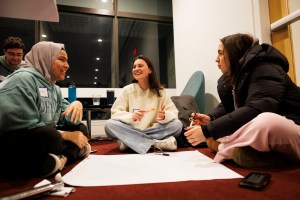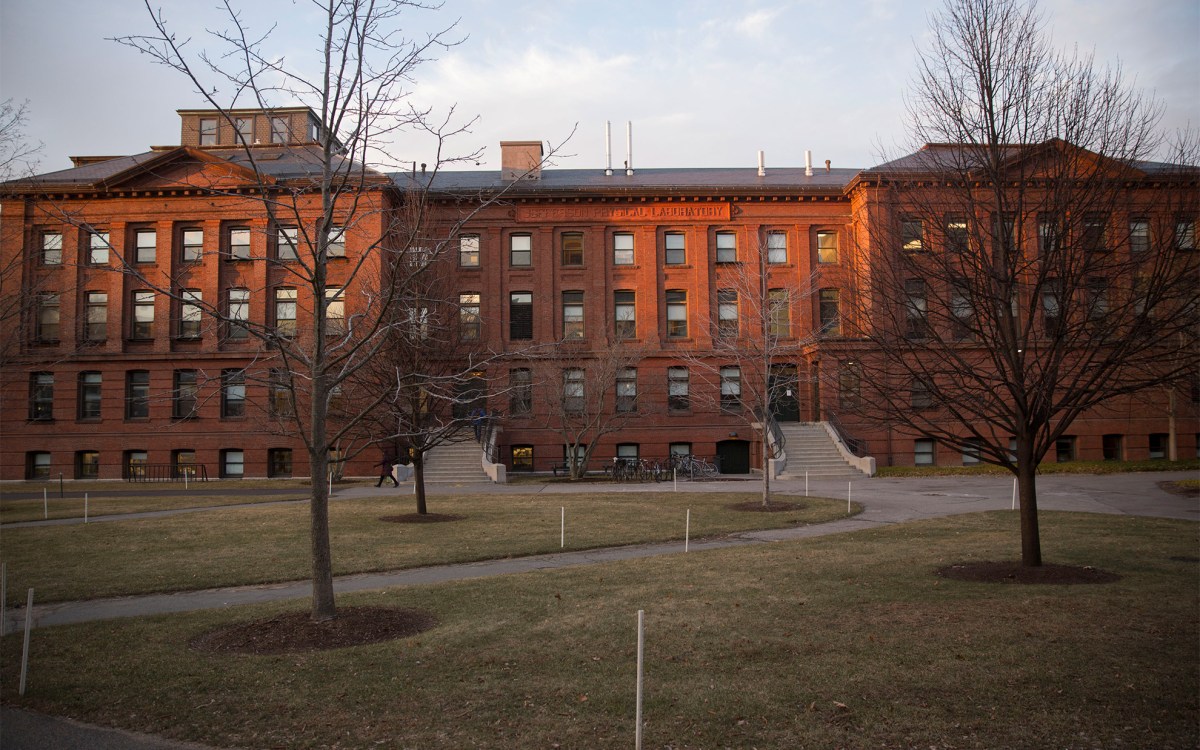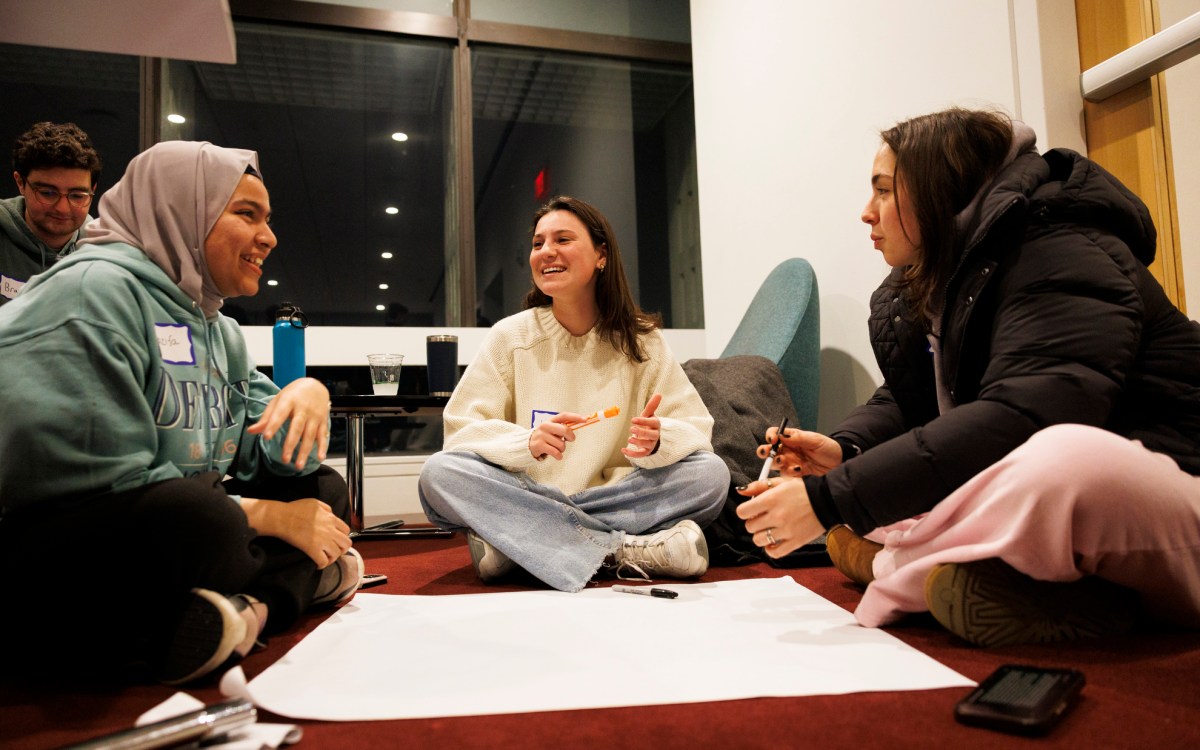Panel opens door to disabilities discussion
Harvard’s services, options, and opportunities provide key to access
The numbers can be staggering: In 2010, it was reported by the U.S. Census Bureau that about 56.7 million people — or 19 percent of the population — had a disability, with more than half of them classifying the disability as “severe.” In fact, people with disabilities are America’s largest minority group.
To address these growing numbers and concerns about disabilities, Harvard’s Faculty of Arts and Sciences (FAS) Human Resources recently organized a community discussion titled “Working with People with Disabilities: What Happens After You Say Hello?”
“This spectrum of diversity is one that is often viewed in a one-dimensional manner,” said Andrea Kelton-Harris, FAS senior human resources consultant. “My goal was to expose our staff and faculty to the many dimensions of this group of individuals and help them build practical awareness that will be useful to them in both their professional and personal lives.”
“Health is a temporary state,” said panelist Michele Clopper, assistant director of University Disability Services. People with disabilities are among the only minority group that anyone can become a member of at any time.
Panelist Kevin G. McGuire, chairman and CEO of McGuire Associates, is one such example. Hit by a drunk driver at age 7, McGuire is now in a wheelchair.
“Nobody ever plans to become a person with disabilities,” said panelist Jonathan G. O’Dell, assistive technology and training manager for the Massachusetts Commission for the Deaf and Hard of Hearing. At 10 years old, O’Dell contracted meningitis, which led to rapid hearing loss. “I feel the loss,” he said. “I had my hearing before that illness.”
Clopper pointed out that a 2008 law expanded the definition of disability as anything that substantially limits one’s ability to engage in a major life activity. With that in mind, she said her office is equipped to provide leadership and guidance not to only comply with laws, but to make sure that members of the Harvard community receive the kind of support that will help them succeed.
“I wanted this discussion to share information about internal resources that exist at Harvard to help managers and staff when facing issues of disability,” Kelton-Harris said. “The panelists were engaging, shared useful information and advice, and provided a foundation of learning upon which those in attendance can build more awareness of the many ways that exist to interact with and support people with disabilities,” she concluded.
To learn more about the services provided at Harvard, visit the Harvard University Disability Services website.




